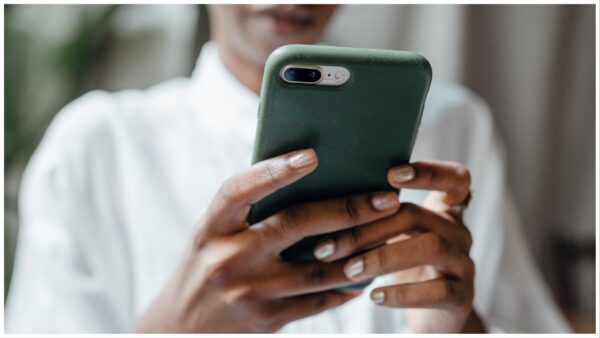A human rights watchdog agency has released a report detailing a troubling discovery regarding the neglect and oversight witnessed on Chinese social media outlets to mitigate copious amounts of anti-Black racist content posted on their platforms.
Human Rights Watch urged the Chinese government to take action and adopt measures to mitigate racist content directed at Black individuals.

“Chinese social media platforms, which are quick to delete content critical of the Chinese government, should remove racist content that violates their community standards on hate speech, or might incite racial discrimination or violence,” the report says.
There are numerous videos and posts that the agency reviewed portraying Black people through the lens of offensive racial stereotypes.
There’s one kind of video that has been widely circulated on Chinese social media, depicting Chinese people as wealthy saviors of African citizens who are characterized as primitive or impoverished and providing them with jobs, housing, food and money.
Other common posts include debasing interracial relationships between Chinese and Black people. In these instances, users accuse Black people of “contaminating” the Chinese race. Even some Chinese women who have posted their Black partners have been subjected to harassment, death threats and threats of rape.
Additionally, some social users in China have adopted racist symbols, called for the Chinese government to ban Black people from becoming permanent residents in the country and marrying Chinese people, and have even made calls to kill Black people.
Human Rights Watch says this content has been shared broadly on Chinese social outlets such as Bilibili, Douyin, Kuaishou, Weibo, and Xiaohongshu, despite the fact that these platforms all have published community standards and guidelines banning content promoting racial or ethnic hatred and discrimination. However, none of these outlets have taken routine action to address racist content.
The Chinese government, prominently known for its internet censorship system dubbed “The Great Firewall,” is relentless in its efforts to make sure Chinese social platforms delete content critical of the government. These platforms have thousands of content moderators who remove or restrict content deemed politically insensitive, according to Human Rights Watch. However, racist content appears to fly by their radar.
The rights group believes they are not meeting their own standards or that their policies are inadequate when addressing racist content, both contrary to their human rights responsibilities.
“The Chinese government likes to tout China-Africa anti-colonial solidarity and unity, but at the same time, ignores pervasive hate speech against Black people on the Chinese internet,” Yaqiu Wang, senior China researcher at Human Rights Watch, said in a statement. “Beijing should recognize that undertaking investments in Africa and embracing China-Africa friendship won’t undo harm caused by unaddressed racism.”
Black people who had recently lived in China told Human Rights Watch that they had reported racist content to social media companies, only to receive automated responses that the content did not violate guidelines.
“For me, it’s shocking that [racist] stuff like that doesn’t get censored or banned given how quickly the Great Firewall works to ban,” said a Shanghai-based West African man.
A Black man from the United States with a sizable following on TikTok makes videos about his life in China. He told Human Rights Watch in May that he would not post the same content on Douyin because of the prevalence of racism.
“It is very hard to look at these comments and think anyone who is on the street walking by me could be saying those things online, and having those type of thoughts,” the content creator said. “It’s unnerving to be so close to someone who hates you so much for existing.”
Human Rights Watch said the Chinese government should counter hate speech online through affirmative or nonpunitive measures, tailoring its response to the specific context. These measures should also include public education, promotion of tolerance, publicly countering incendiary misinformation and strengthening security to protect those who are threatened.
“Major Chinese social media platforms are failing to fulfill their own guidelines to address pervasive racist content,” Wang said. “Chinese authorities should stop facilitating this toxic environment.”


